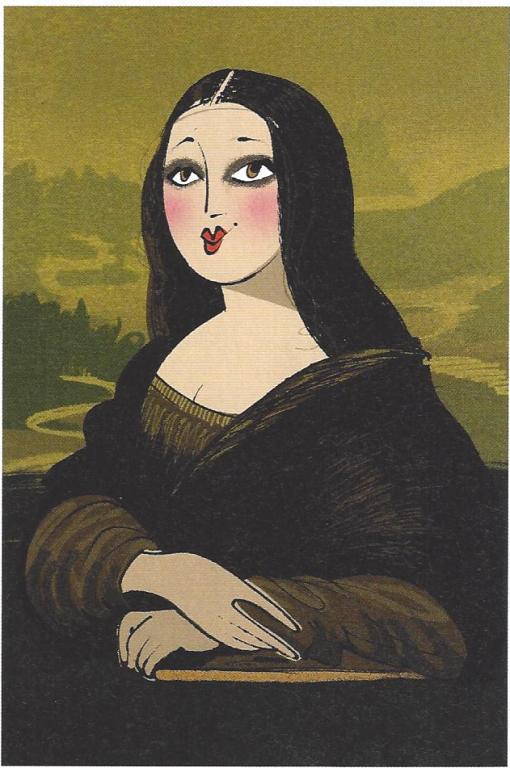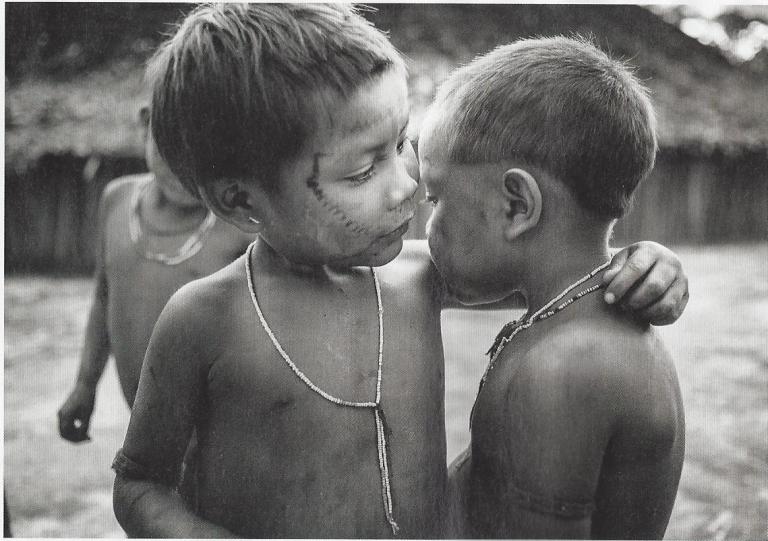 |
 Authors on
Museums: at the Museum of the Jewish People in Tel Aviv, the novelist
Adam
Foulds could be one of the exhibits. Going back there for the first
time since
his gap year, he finds it forces him to think again about who he is.
PHOTO
ESSAY
Northern Brazil: deep in the rainforest, modern health care mixes with ancient rituals
CHEKHOV'S
GUIDE TO NOT SLEEPING
~ Posted by
Robert Butler, November 14th 2013 When Anthony
Gardner attended an evening class for us last week on how to sleep
better, he
discovered there were four basic rules. He wasn't the only one keen to
learn
what they were: the class itself was very well attended and his
blogpost was
the most-read article on this site. I was ready
to follow his advice and when I woke at two this morning I remembered
there was
no listening to the radio, no switching on the computer, and no
checking the
phone. Instead I reached for a collection of short stories and picked
the one
which sounded as if it would be the least stimulating. Chekhov's
"A Boring Story" deals with the teeming, raw and uncharitable
thoughts of Nikolai Stepanovich, an eminent professor and privy
counsel, who at
the age of 62 senses his approaching death. "As regards my present
life," he tells us on the second page, "I must first of all mention
the insomnia from which I have begun to suffer lately." This, he says,
is
the "chief and fundamental fact" of his existence. The physical
details in the story belong to the late 19th century, but his
experience would
be familiar to anyone attending the how-to-sleep class. There is the
slow
passage of time—"the clock in the corridor strikes one, then two, then
three"—as Nikolai waits for the cock to crow and the first glimpse of
light beyond the window. There are the sounds of the night—the creak of
the
wardrobe's warped wood and the unexpected hum of the wick in the
lamp—which
carry an excitement of their own. There are the mental games that
Nikolai plays
to get to sleep: counting to a thousand or trying to picture the face
of a
colleague and recall the year he joined the faculty. And, lastly,
there's the
relentlessness of it all: "tomorrow and the day after tomorrow the
nights
will be just as long." The 58 pages
were not nearly boring enough. After finishing it, I lay awake
wondering if
there was a better fictional account of not getting a good night's
sleep. Robert
Butler is online editor of Intelligent Life Image Getty 
Rebecca
Willis Applied Fashion Ngay cả
thiên thần thì cũng có mặt dơ! Note: Bài
này thú nhất, trong số báo. The world we
live in is literally written on our bodies. Thế giới chúng ta sống được
viết
trên cơ thể bạn. Nhưng đâu chỉ
bộ mặt! Hà, hà! RECENTLY I
WENT to a party as a panda. It wasn't fancy dress - I just put on too
much of a
new, smudgy eyeliner that I'd never used before. Special occasions
prompt us to
want to look our best, and make-up, like clothes, offers the chance to
choose
what that might be. But where on the spectrum from natural to mask-like
artificiality do we want to sit? And even if we know, how do we achieve
it when
there are acres of products on the shelves and we have less than a
square foot
of face on which to put it? After the
panda incident, I decided to get to grips with makeup, in theory and in
practice. While I wear moisturizer daily, eyeliner often and lipstick
sometimes, I have never made the transition to foundation or any sort
of
whole-face make- up. It always seemed odd: as a child you're told to
keep your
face clean, then suddenly as a grown-up you're encouraged to put dirt
on it. I
hate the feeling of having my face covered in gunk which gets on my
clothes and
my phone, and I dislike planting a kiss on a cheek clammy with what the
industry calls "product". The occasional quick swish of compact
powder on a sponge moistened with water is as far as I go. There are
lots of
ways to learn how to apply dirt to your face. The internet is full of
make- up
tutorials, posted both by big companies such as L'Oreal and by
individual women
who just adore make-up and treat it with a high seriousness (see
feature, page
70). Online, I discovered how to find my eye's "outer V"- it starts
at the corner, heads for the outer edge of the brow, then turns inwards
when it
meets the eyelid fold - and also that dabbing on eye shadow is better
than
swiping it, which removes as much color as it applies. Offline, I went
for a
lesson at a department store. Hoping to avoid any more party make-up
malfunctions,
I chose the one called "smokey eye": in fashion-speak, eyes, like
shoes and trousers, go into the singular. I picked up some tips, such
as using
the side of an eyeliner brush to get close to my lashes, and how to do
a flick
in the corner of the eye (rather than go freehand, you continue an
imaginary
line upwards from the lower lid). But after two coats of mascara, which
I don't
normally wear, my eyelids felt they were weightlifting. I went home,
heard the
verdict - "too much" (son); "it makes you look old"
(husband) - then ran upstairs, took it all off, and felt like myself
again. It
is not a coincidence that "made up" means pretend. Why wear
make-up in the first place? The urge to paint ourselves is millennia
old: the
ancient Egyptians had kohl, the ancient Britons woad. Jezebel is on
record in
the Old Testament as making up her eyelids; Elizabeth I and the Kabuki
dancers
of Japan slathered their faces with white lead; native Americans and
other
tribal cultures decorated themselves with bands of color before a
battle. Today
it is part of our culture to paint ourselves before a different sort of
encounter: a social one. The expression "war paint" is an apt one. In her
fascinating book "Bodies" (Profile Books), Susie Orbach describes how
the culture we live in determines the marks we make - or "inscribe" -
on ourselves. The world we live in is literally written on our bodies.
The
objective of make-up nowadays seems to be to mimic the smooth,
even-toned skin
of youth, and, to quote make-up artists and shop assistants, to "open
up
the eye" (singular). They all talk about opening up the eye; this is
not a
surgical procedure, thank goodness, but seems to mean making it look
brighter
and above all bigger. No one could
tell me why that should be so desirable. Then I read that the distance
between eyeball
and eyebrow is a key factor in gender perception, and is much greater
in women
than men. To enlarge that distance is to exaggerate your femininity. And when the
eye itself is widened it is a sign of submission, so opening up the eye
makes
us kittenishly vulnerable. No wonder early feminists went bare-faced.
Narrowing
my eyes, I picked up a book on body language. "The use of lipstick",
it read, "is a technique thousands of years old that is intended to
mimic
the reddened genitals of the sexually aroused female." Was ever a
sentence
more likely to give you pause before whipping a stick of Chanel's Rouge
Allure
out of your handbag? We might just want to reflect a moment on these
things
before we hand over the contents of our wallets to the billion-dollar
cosmetic
industry, and slap our purchases, in the name of improvement, onto our
party-going faces .• |

